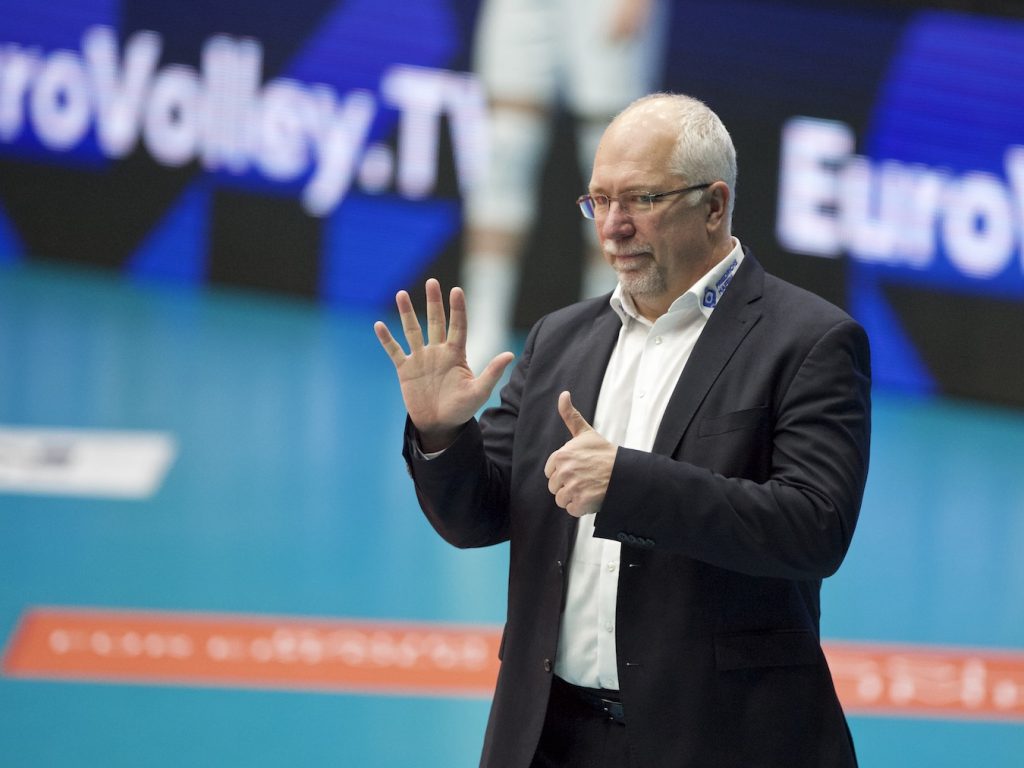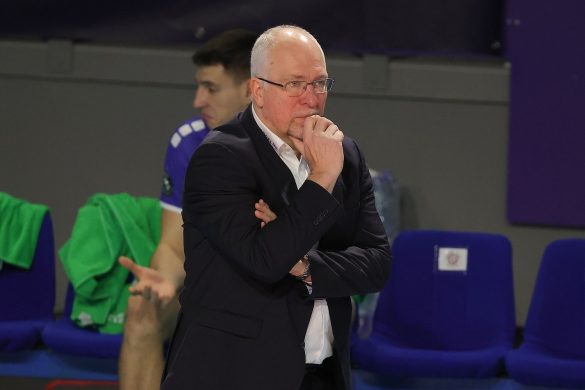For a very brief period, in what seems like several lifetimes ago, I coached a women’s team. It was an enjoyable experience. Until it wasn’t. But that had nothing to do with the girls, who were wonderful. None of those things have anything to do with the story, which is about the setter.

The setter was a very talented player with great touch, and smart and cheeky in, dare I say it, a De Ceccoish kind of way. She used to love to score points directly by setting over the net on the second contact. Without jumping. This was incredibly annoying because it was a very easy ball to defend and yet she always scored it. I knew that at the next level this ball wouldn’t score but my explicit instructions to the team were that their job was, in every instance, to figure out the best way to win the drill or game. I couldn’t tell her not to play that shot because she was following my instructions. What could I do? I decided to focus my attention on the defenders’ actions and responsibilities.
I told the defenders that this was an easy ball to defend and that there would be consequences if they didn’t defend that ball in the future. I want to say that the consequences were a minus point in the game, but I suspect I might have made the defending team run lines. The outcome was that the setter kept trying to score. And kept succeeding, to my intense displeasure and to her, I am fairly sure, her secret pleasure. No amount of ‘consequences’ seemed to be able to change the outcome.
At some moment as I was prowling around the court, it felt like prowling to me but probably wasn’t, I ended up being exactly behind the position 5 defender as the setter attempted one of her specialities. I was shocked to learn that from the perspective of the defender it was virtually impossible to read the direction of the set as it left the setter’s hands. In the early part of the flight path, the trajectory looks exactly like a first tempo set. It is only after the ball is past the block that the defender really sees that it is actually about to land in front of them. And so I learnt. A few things.
The ball was not actually an easy ball to defend. History has shown that that particular kind of setter attack can be successful at the highest level (see De Cecco, Luciano among others), so I was wrong about that too. But most of all, I learnt that what the coach sees from a position next to, or behind the court, with all players in their line of sight, is completely different from what the players see from their positions on the court. Players and coaches have a literal different perspective.
Before you tell a player what they should have done based on what you saw, stand behind them (literally and / or figuratively) and piece together what they saw. Now you have a real teaching moment that can have a deep effect not only the outcome of individual actions but on how you and the players see the game as a whole.
- My exact instructions were, even it breaks the rules of volleyball, but not of the drill. In that case, you get the point, and I will fix the rules.
- Consequences. You have to love that word. As if losing the point was not a consequence. Accountability is also a great word. Given how coaches seem to interpret it, it is strange to think that it doesn’t actually mean ‘shouting at someone who made a mistake’.
- I wish I could say that was the only time I did that. In my defence, it was the ‘standard’ practice in the last century. It’s not a great defence.
About Mark Lebedew:

Mark Lebedew authors the At Home on the Court Blog. He coaches professionally in Poland, from january 2021 with eWinner Gwardia Wrocław, in season 2019/20 with Aluron Virtu CMC Warta Zawiercie and in the period 2015-2018 with KS Jastrzębski Węgiel. That follows five seasons Germany where his Berlin Recycling Volleys won three straight league titles and a CEV Champions League bronze medal. He has prior professional experience in Belgium and Italy. Mark was also Head Coach for the Australian Men’s National Team. From 2021/2022 until the end of the 2023/2024 season he was at the helm of VfB Friedrichshafen, while in 2022 he led the Slovenian national team during the Volleyball Nations League. In the 2024/2025 season, Mark Lebedew takes charge of the Netherlands’ team, Nova Tech Lycurgus.
Mark partnered with his brother and father to translate and publish “My Profession: The Game“, the last book by legendary Russian coach, Vyacheslav Platonov.
With John Forman, he is behind the Volleyball Coaching Wizards project (link http://volleyballcoachingwizards.com/) which identifies great coaches from all levels, making their experience, insights, and expertise available to people all over the world. The project has produced multiple books, a in e-book format available here ( link to http://bit.ly/34yakou ) or at Amazon here (link https://amzn.to/2JRqTE6).
In 2021, he launched project Webinars and Presentations on Demand. If you are interested for coaching presentations and webinars available on demand, click here.